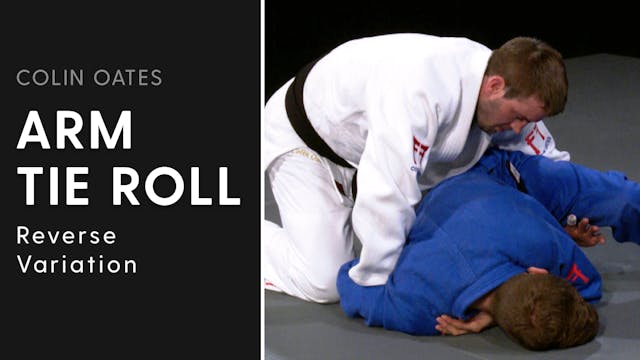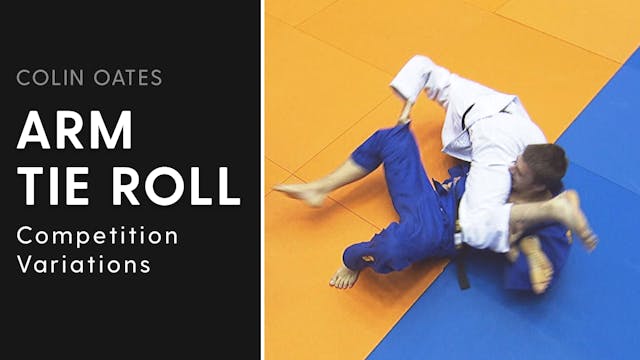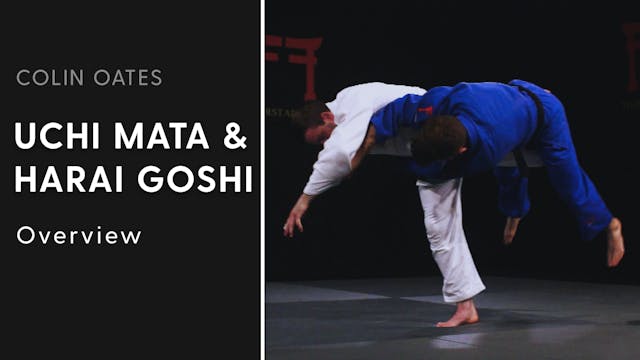Once Oates had the jacket tied up, he considered this as a winning position. If his partner tried to prevent the roll he had a couple of other variations of the technique that he could use in order to secure Osaekomi… His first variation was Sangaku.
The most common defence to the arm tie roll was for the partner to turn their hips away from Oates and to brace with their left leg.
In this case Oates tucks his right heel under their elbow, which adds leverage to the turn.
He then pulls up on the arm that’s tied off.
Using the whole of his bodyweight he leans on his partner’s head and rolls them over.
Here’s the upward motion on the arm, with the leg hooked in.
And here’s the roll… Finally, at the end, securing the Sangaku, by placing his left foot behind his right knee, and dropping his head to the tatami.
Up Next in Watch All
-
Reverse Variation | Arm Tie Roll | Co...
If Colin Oates was up against a particularly strong or flexible opponent, they would sometimes be able to brace their leg high up and prevent his Sangaku arm tie roll. In this situation he would use his reverse variation.
As Oates secures the tie off, the partner manages to get his foot high up ...
-
Competition Variations | Arm Tie Roll...
In this clip we see the competition variations of Colin Oates’s arm tie roll.
On his way to a bronze medal at the 2013 Rijeka Grand Prix Oates uses the standard variation of his arm tie roll against Spain’s Cases
Oates brings his right knee into play to help turn his opponent onto his back.
On...
-
Overview | Uchi Mata & Harai Goshi | ...
Colin Oates says that when it comes to his Uchi mata and Harai goshi he has one key thing in mind, which is how to get a reaction from his partner.
It’s this reaction that generates the crucial momentum that he needs in order to throw.
His standard variations of both Uchi mata and Harai goshi a...



